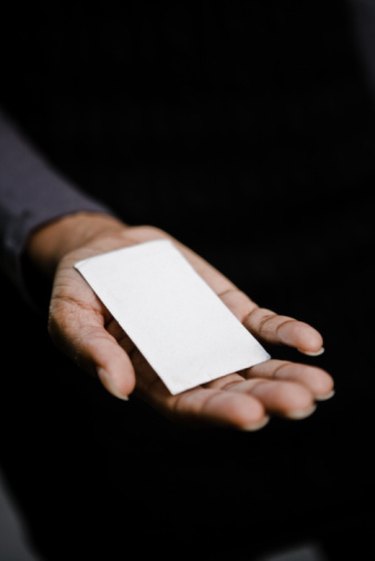
A well-written birthday card instantly lights up a person's face. But a poorly written one makes you seem uncaring, out of touch or worse. When writing a card for a 90-year-old, focus on personalizing the card to the recipient. Look at cards from the prime of her life, listen to how she speaks and incorporate these into the language of the card. Additionally, do not use language that assumes the person will die soon ("I'll miss you"). Many people live well into their hundreds, and to act like the person already died can seem disrespectful.
Consider Your Audience
Video of the Day
When writing a birthday card for your new nonagenarian (a person between the age of 90 and 99), first consider the person receiving the card. This kind of forethought guides you when it actually comes time to write the message. For example: Is the 90-year-old a funny grandfather who told you war stories? Choose a funny card with military respect (calling him "Sergeant," for example). If the card is going to a great-grandmother who you never knew well, include a picture of your family.
Video of the Day
Additionally, consider any potential disabilities that might plague the 90-year-old. If the nonagenarian is going blind, use contrasting ink and bold letters; if deaf, cut out the singing birthday card. And even while some older persons play games on social networking sites, many nonagenarians are not ready for an e-card.
Personal Story
Adding a story to a birthday card helps your recipient in several possible ways. On a base level, a personal story about a time the two of you spent together helps someone to remember you (many nonagenarians have many children, grandchildren and great-grandchildren). Additionally, the story serves to remind the elder of how much you care. Lastly, relating a personal story gives the gift of letting the recipient know that she impacted your life.
A story does not have to contain several pages. For example: "Remember when we used to go fishing down at the pond? That was always my favorite part of the summer."
Show Interest
Whether or not you include a personal story in your card, show interest in the person's life. To do this, do a little research on the neighborhood in which he lives, some of his favorite songs or his favorite television shows. If you don't know any of this information, ask someone close to the person about his interests.
When writing the card, reference one of the elder's interests. For example, write: "Patty told me you loved Nina Simone. I just listened to 'Sinnerman,' and I love the way the piano builds in intensity for the last five minutes. Did you ever see her in person?" Then close the card: "I love you, John 'Sinnerman' Smith."
Say “Thank You”
One of the most important things in life is knowing when to say "thank you." According to Emily Post, you should say it as much as possible.
Use the birthday card to express gratitude for your nonagenarian friend. If you two spent time together, thank her for that time. If it's to a grandmother that you didn't know well, thank her for your life and how she raised your parent. If you send a card to an older friend, thank her for the impact she continues to make in your life.